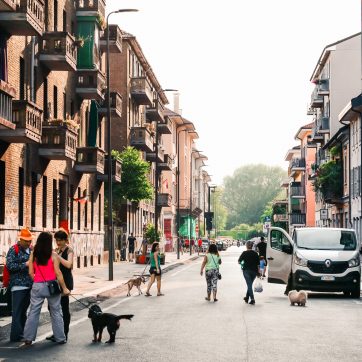
The Merezzate+ project demonstrates how urban environments offer the potential for lifestyles with low environmental impact because high population densities are suited to sharing transport, energy and other resources. It aims to show how sustainability solutions can be adopted at the scale of an entire district through the creation of a ‘Living Lab’ in an affordable housing development currently under construction in south-east Milan.
The Problem
Around 75% of Europe’s population lives in towns and cities, many of which are dependent on ageing infrastructure, inefficient energy systems and out of date transport networks dependent on private cars. They also often suffer from inefficient resource use and citizens tend to have poor environmental awareness.
As a result, urban areas are responsible for significant greenhouse gas emissions with over a third of Europe’s CO2 emissions coming from the built environment, along with high levels of pollution and waste.
Things have to change fast. It is now widely accepted that limiting warming to well below 2oC, as required by the Paris agreement, is vital to maintaining a relatively stable climate system. In late 2019 the European Union agreed to make the bloc carbon neutral by 2050, requiring extensive adoption of efficient, cleaner and less wasteful technologies. At the same time, cities across the continent need to boost resilience to extreme weather impacts associated with climate change. To get us there we need new experiments in something we call ‘systems innovation’, see our strategy ‘Transformation in time’ to understand this further.
The good news is that urban environments offer the potential for lifestyles with low environmental impact because high population densities are suited to sharing transport, energy and other resources, finance is concentrated in cities and economies of scale happen there. As a result, cities across Europe, such as the Municipality of Milan, are working with us to reduce their environmental footprint and boost climate resilience on a number of experiments, one of which is this one working with nearly 1000 residents to switch to low-carbon lifestyles.
The Strategic Experiment
Merezzate was previously an industrial site, dirty and polluted, located far away from the rich downtown and bourgeois residences of Milan. But with the passing of the industrial age, Milan had to reshape and regenerate its industrial sites with the influx of new white-collar citizens, thus expanding its city borders and adapting to their needs of living in a different way. A new rationale for urban planning emerged, more closely linking citizens to environmental and livability concerns.
The Milan Merezzate+ project fits into this narrative by focusing on emission mitigation in an urban development model that puts citizens and the environment first and centre. Building on nearly a decade of ‘Living Labs’ experimentation all across Europe, the project seeks to demonstrate innovative approaches to emissions reductions as part of a holistic approach to sustainability that integrates social inclusion and a circular economy with clean energy and sustainable mobility.
‘Living Labs’ are valuable for us because they allow us to observe human behaviour, so we can test if a climate change approach works before we look to scale it. For example, they enable us to test the impact of high levels of airtightness in buildings on extended families, or even simple things like how households separate waste, or how families relate to say smart meters: are they too complicated to use? Did the data result in any changes in behaviour?
Our part of the project is managed by the Polytechnic of Milan, a leading Italian university for engineering and design, in collaboration with Consorzio Poliedra, and A2A Smart City and A2A Calore e Servizi – two companies of the A2A Group, which is one of the largest multi-utility companies in Italy- respectively dealing with technological and digital infrastructures and services, as well as district heating. Other organisations involved in the project include the Municipality of Milan, Housing Sociale Foundation, and InvestiRE SGR, which was subsequently replaced by the newborn entity REDO SGR S.p.A., a benefit company to undertake the management of the fund that underpins the development with a stronger mandate on social and environmental impacts.
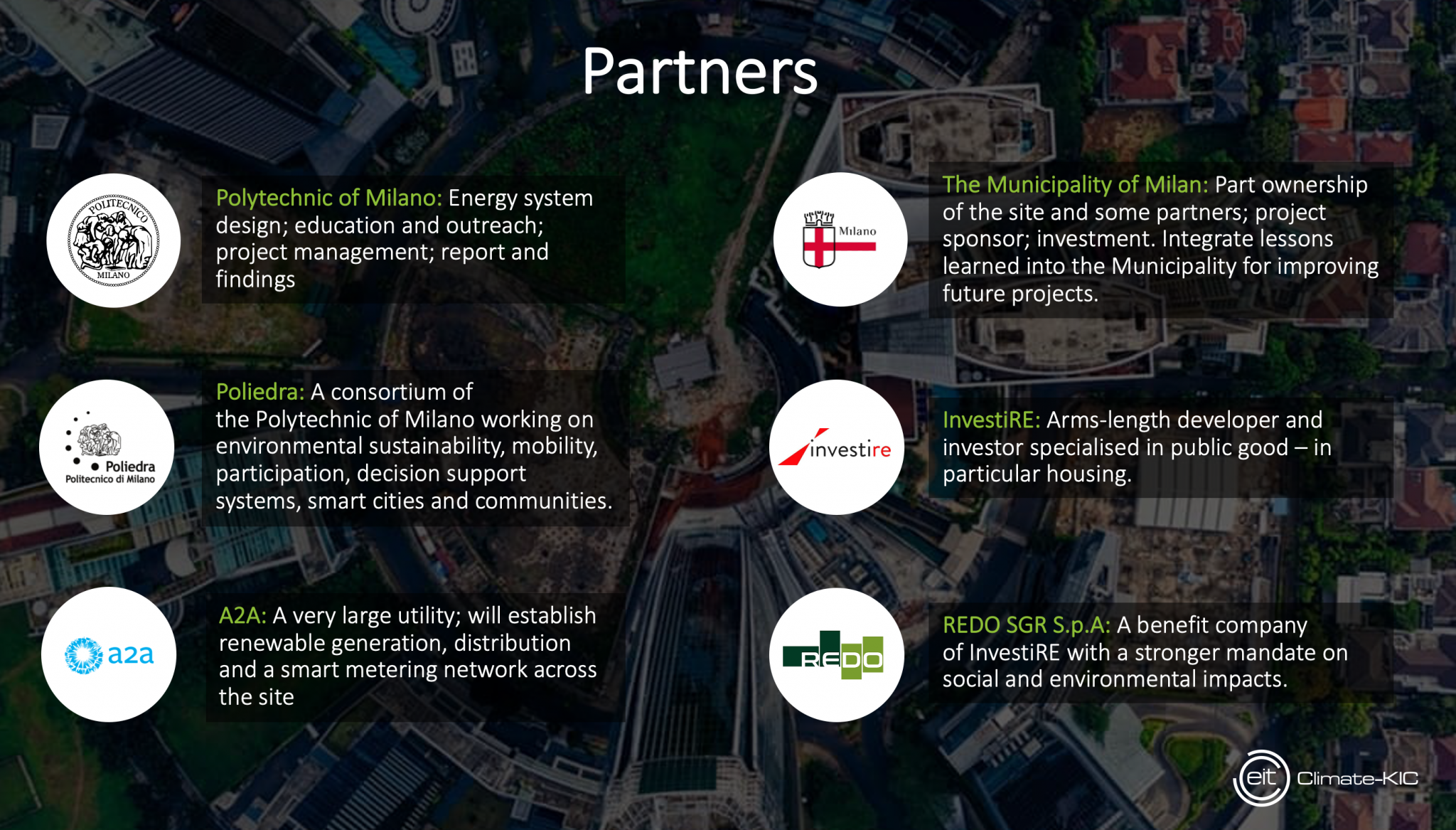 The project is one brick in a city seeking to transform itself. The development is aimed at providing housing for key workers, not luxury housing for the middle classes, through a development model where the city is involved in providing the land and then development which puts communities first. Because of this, the communal nature of the fabric of the community is different. A community enterprise, set up to run the energy, is being used for other functions including, mobility sharing, food sharing and has the potential to also provide child care and other activities.
The project is one brick in a city seeking to transform itself. The development is aimed at providing housing for key workers, not luxury housing for the middle classes, through a development model where the city is involved in providing the land and then development which puts communities first. Because of this, the communal nature of the fabric of the community is different. A community enterprise, set up to run the energy, is being used for other functions including, mobility sharing, food sharing and has the potential to also provide child care and other activities.
It aims to show how sustainability solutions can be adopted at the scale of an entire district through the creation of a ‘Living Lab’ in an affordable housing development currently under construction in south-east Milan. The development, known as REDO Milano, will total 800 apartments, with 615 of these being rent-controlled. The learnings of the project will scale across to other sites in the city including the Scalo Greco Breda which was part of the Reinventing Cities competition. This work was a feeder into the Deep Demonstration programme, which we launched in July 2019, where Milan is one of the 15 cities working with us.
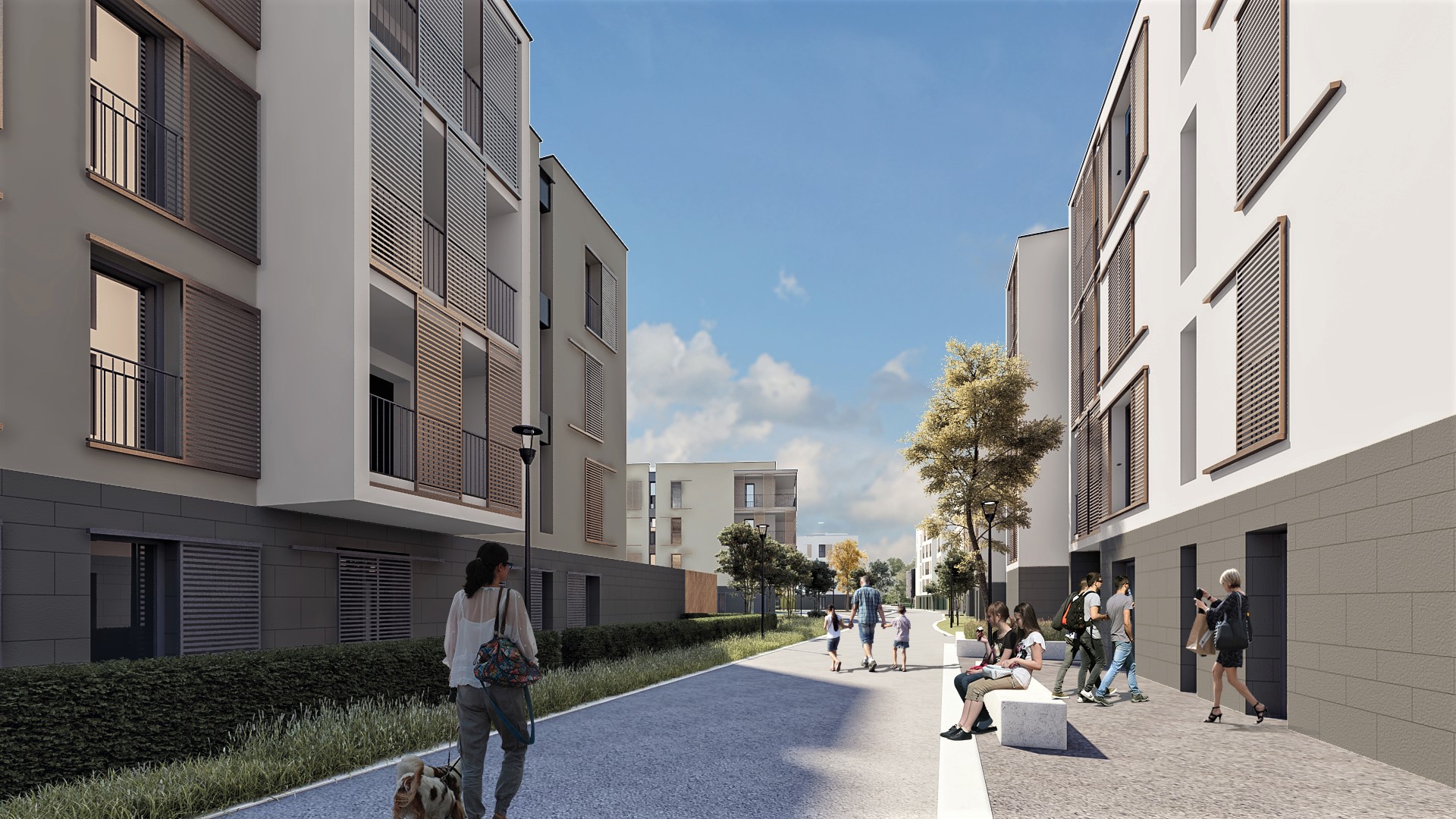 Three core themes form the backbone of the project with efforts made to exploit synergies between all three: clean energy and energy efficiency, sustainable mobility and the circular economy. Example solutions include:
Three core themes form the backbone of the project with efforts made to exploit synergies between all three: clean energy and energy efficiency, sustainable mobility and the circular economy. Example solutions include:
Clean energy and energy efficiency:
- A ‘low temperature’, clean and efficient district heating model that can also be used for summer cooling and integrates renewable energy and waste heat recovery- a first in Italy.
- Air conditioning and ventilation using “Freescoo”, an innovative thermal-driven system with minimum power consumption that offers substantial costs savings.
- ICT tools to control the thermal and electrical consumption of individual dwellings, allowing tenants to monitor their behaviour in real-time and to shave local demand peaks and manage the electrical load.
Sustainable mobility:
- Analysis of travel behaviour to give guidelines for optimised use of electric and shared mobility.
- New cycle paths, bicycle parking spots and charging points for electric vehicles.
- Community designed solutions such as e-car-sharing, e-bikes or a children’s walking bus.
Circular economy:
- Green purchasing groups for household appliances, shopping or energy and a shared vegetable garden.
- Co-design of shared community services in common spaces, such as kitchens, orchards and drinking water distribution points.
- Workshops on repairing and reusing products and training on best practice waste management and recycling.
The project team, together with key stakeholders, including the Municipality of Milan, housing associations, utility providers and the future citizens will work together to ensure the chosen sustainability solutions best meet users’ needs. The emphasis will be on building a community that fosters grassroots initiatives and makes use of ICT tools to monitor environmental impacts.
For example, a community App developed by the Merezzate+ project partners and local actors, known as ‘Planet App’, will serve as an important engagement tool, allowing users to manage shared spaces and services within the housing complex, as well as monitor and manage their heating consumption. It will also allow residents to compare their environmental performance against other inhabitants and offer rewards designed to encourage sustainable behaviour.
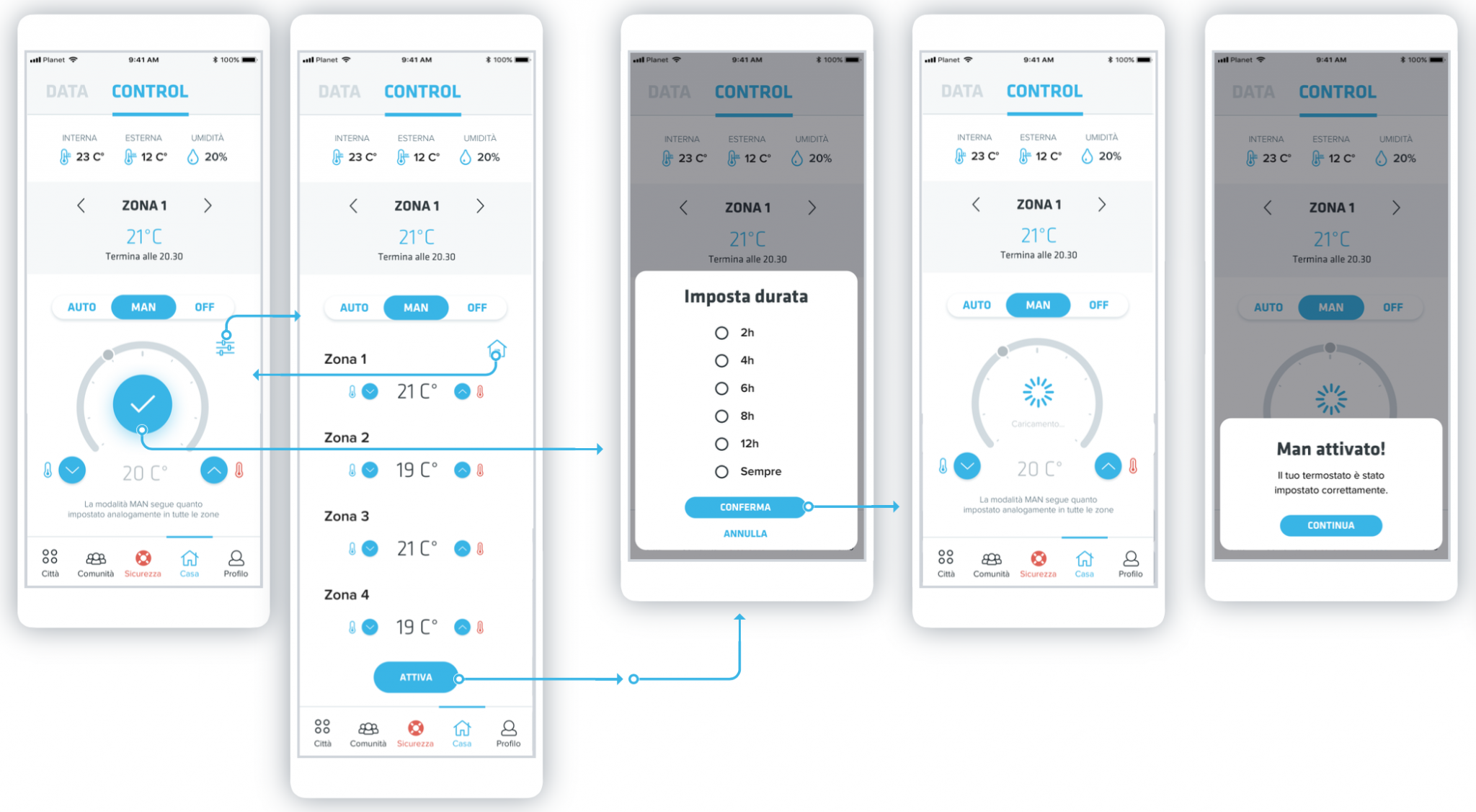 Impact
Impact
Tenants are due to move in during Summer and Autumn 2020 and once inhabited, the Merezzate+ project will not only contribute to the goals of the Paris agreement but have far-reaching additional environmental, social and economic impacts.
Overall, the project is expected to contribute to the following impacts:
- Environment: Will benefit from reduced energy consumption, emissions and waste across all three core themes of energy, mobility and circular economy.
- Social: The community will benefit from improved social inclusion resulting from the community development and engagement process and improved local environmental and air quality.
- Economic: Energy savings, more efficient purchasing, reuse and reduced waste will support the finances of all citizens and benefit the local economy.
The extent of these impacts will be measured and monitored by the project team. For example, energy use will be monitored against the average energy performance of building stock across Milan and data on resources and waste, for instance through green purchasing groups, will be collected to assess the impact of the circular economy and shared mobility schemes, the latter including an analysis of travel behaviour.
When established, the results of Merezzate+ project will be used to draw guidelines on the potential replicability of the model in other areas of Milan and additional European cities.
EIT Climate-KIC’s role
Milan Merezzate+ is one of many strategic experiments that we are undertaking in Milan. Our engagements build on strong relationships established through previous activities with the city’s stakeholders, for instance the Climate Innovation Summit in 2017 that took place in a former industrial complex transformed into an art and design hub.
Together with our partners, we are currently working on a place-based, city-wide, residentially led experiment to demonstrate how to transform Milan into a sustainable, climate-resilient city, by catalysing change at a district scale. Combined, the projects involved are harnessing capital values exceeding €3 billion. Much of the details surrounding all the experiments are still confidential but they include experiments in the areas of fundraising and leveraging a carbon fund, new forms of contracts and procurement, new policies and resilience, greening Milan through nature and managing the effects of the urban heat island.
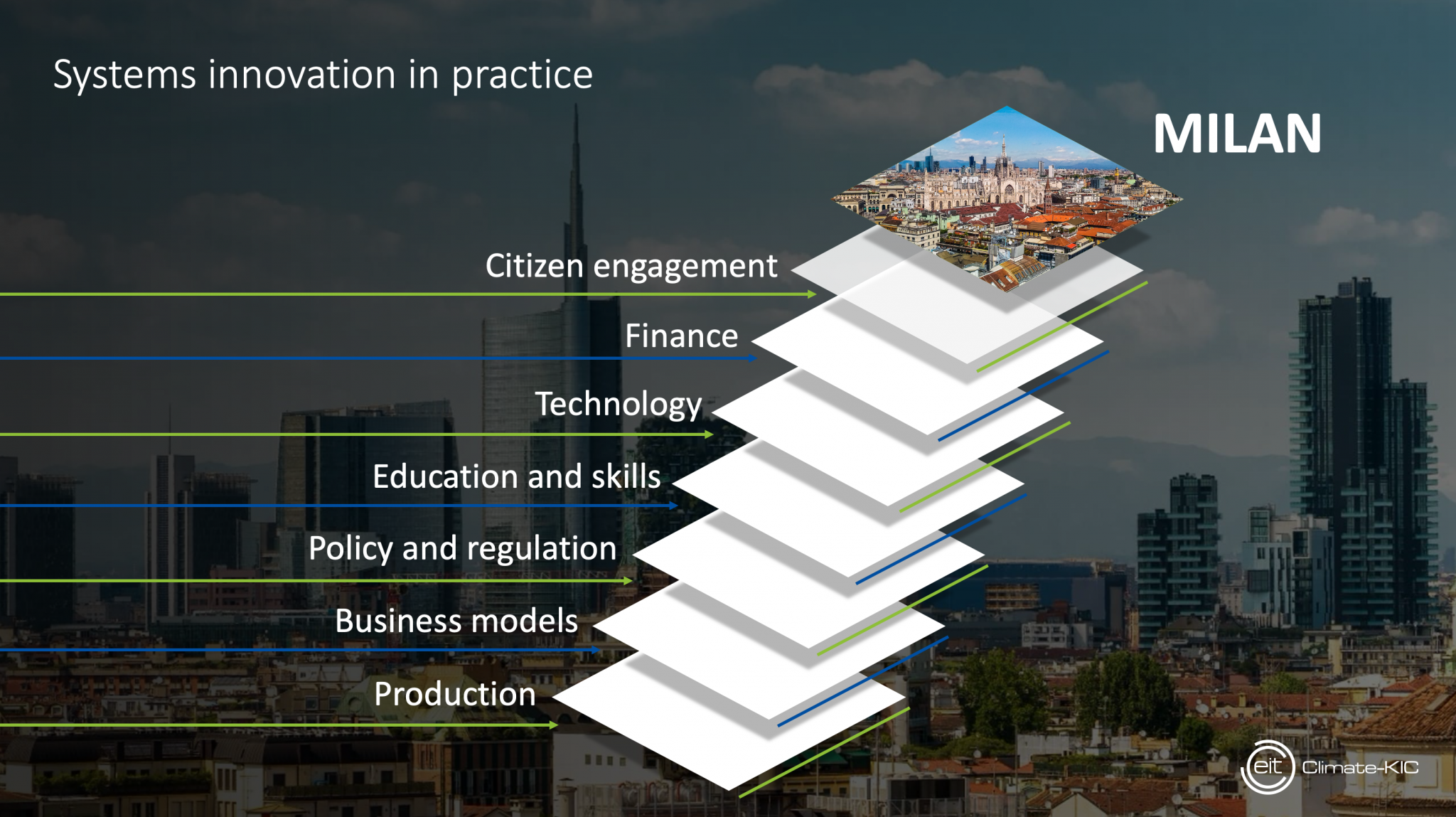
Combined, the projects in Milan are part of EIT Climate-KIC’s larger, multi-city Deep Demonstration of Healthy, Clean Cities. Our involvement will enable the sharing of the projects’ outcome with other stakeholders across Europe, specifically in Malmo, Copenhagen, Helsinki, Gothenburg, Trondheim, Vejle, Aarhus, Stavanger, Birmingham, Valencia, Castellon, Budapest, as well as the cities involved in our Healthy, Clean Cities Deep Demonstration, see below for an overview of cities involved as challenge owners. The eventual aim is to replicate the Merezzate+ innovative solutions and approaches across the world.
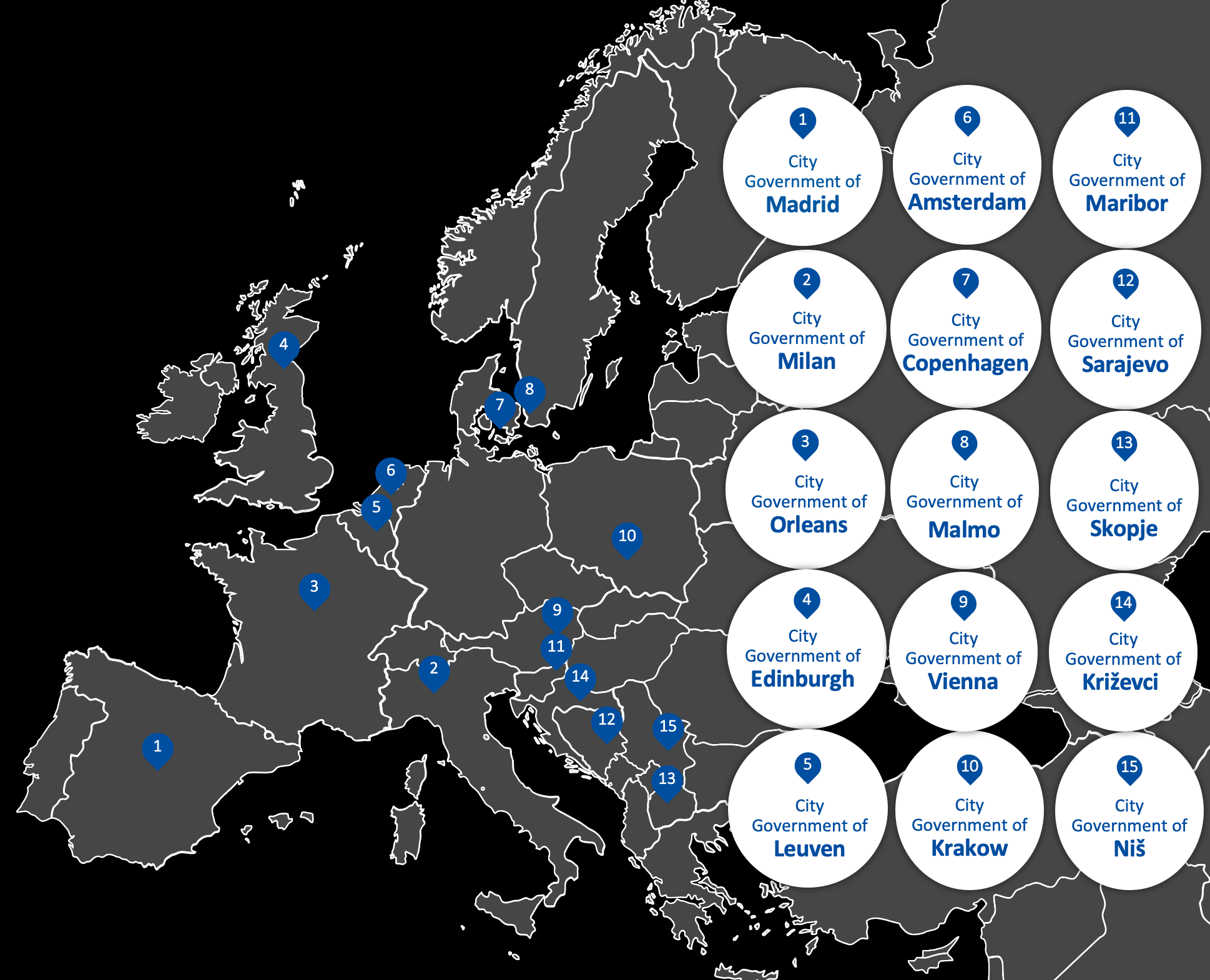
Deep Demonstrations: Healthy, Clean Cities
Deep Demonstrations introduce a carefully designed methodology to support and guide a systems innovation process to effective outcomes. The methodology works across four iterative and non-linear components. These include designing, developing and deploying innovation with challenge owners so that multiple drivers of change are addressed simultaneously.
The methodology we are using enables cities to connect and manage a whole constellation of projects in ways that enable those initiatives to learn from one another and yield learnings about how to achieve transformation. We know that one of the biggest obstacles to transformation is a problem of emphatical belief – seeing is believing. It is very hard to make large scale commitments of capital and regulatory change behind acts of imagination.
Decision-makers need options – the experiential learning that innovation can provide through demonstration through engagement in local places, in specific contexts, with ordinary people and with unusual agents of change. Our systems innovation approach works on the principle of learning by doing – hence the idea of Deep Demonstrations – and in doing so involving the whole community as agents of change. Deep Demonstrations are designed to be real-world showcases of cities, regions, countries and businesses – highlighting that rapid decarbonisation and resilience is possible and brings multiple benefits.

